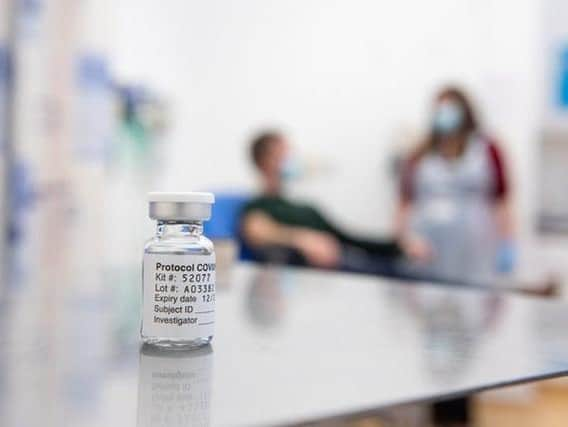University of Bradford academic to clear up pandemic confusion and chart disease history at Bradford Science and Media Museum event


Scientific jargon may have never been spoken more by the general public than during this pandemic, but Yorkshire academic Dr Conor Meehan says people are still confused.
Test and trace, prevalence, novel coronavirus, herd immunity...Before 2020 such terms would have caused most people consternation, and for many still do.
Advertisement
Hide AdAdvertisement
Hide AdThe University of Bradford lecturer in molecular microbiology believes this is partly down to a lack of clarity about just what certain terms mean.
So in partnership with the National Science and Media Museum’s latest Café Scientifique presentation, Dr Meehan will shed light on the mysteries of epidemiology – the study of disease distribution – from its origins at a water pump in Soho, London to the present-day use of DNA and mobile phones.
His free-to-view talk Tracking Transmission: Evaluating Epidemics and Tracing Contacts will take place over Zoom from 6.30pm to 8pm on Thursday.
Dr Meehan says that “people are still confused” about some scientific phrases that entered the public vocabulary in 2020.
Advertisement
Hide AdAdvertisement
Hide Ad“I feel like it’s not very clear in the media,” he says, which has led to people sometimes being both more afraid than necessary and less afraid than they should be, he adds.
Helpfully, he is able to define simply some of these: incidence is the number of new cases of a disease we see in a time frame; prevalence is the total number of cases of a disease at a certain point (end of the week/month/year); and the R0 number is the number of people every person infects, on average.
Another area of misunderstanding is of track and trace, or test and trace.
“If you ask somebody what track and trace is, they would say it’s the app,” he says.
Advertisement
Hide AdAdvertisement
Hide AdBut the system has been a way of manually evaluating the spread of disease in Dr Meehan’s field for years.
“The switchover to an app is actually only just for coronavirus,” he adds.
The presentation comes after Prime Minister Boris Johnson on Monday unveiled tentative steps towards lifting the latest, third lockdown as the vaccine programme continues to gather pace. All schools are set to reopen on March 8 and two families or a group of six friends will be allowed to meet outdoors three weeks later, he announced on Monday.
Dr Meehan’s view on the current stage of the pandemic is that progress is positive – he stresses that the vaccine rollout is the biggest in the “entire history of the entire world” – but hopes that people will remain cautious after lockdown is lifted.
Advertisement
Hide AdAdvertisement
Hide AdIn the past, people have taken the relaxation of restrictions as a sign that things are getting back to normal and have started to behave in riskier ways, he believes.
“The ones that we really, really, really need to protect are being protected. It’s about a balance between things being a bit more 2019 – I won’t say normal – and still making sure they don’t make it shoot up again.”
Dr Meehan’s work generally focuses on tracking the transmission of tuberculosis in high burden countries such as Rwanda, Ethiopia and Bangladesh. He has over a decade of experience in clinical epidemiology and is an expert on the use of genome sequencing for the diagnosis and tracking of pathogens.
Café Scientifique is a “friendly and collaborative exploration” of the latest breakthroughs in science, says the museum, where people can hear about, discuss and debate some of the most recent advances and discoveries.
Advertisement
Hide AdAdvertisement
Hide AdEach event has a theme and have included everything from the latest in physics to the science of music, from nanotechnology to biology.
To book free tickets, visit www.scienceandmediamuseum.org.uk/whats-on/cafe-scientifique.